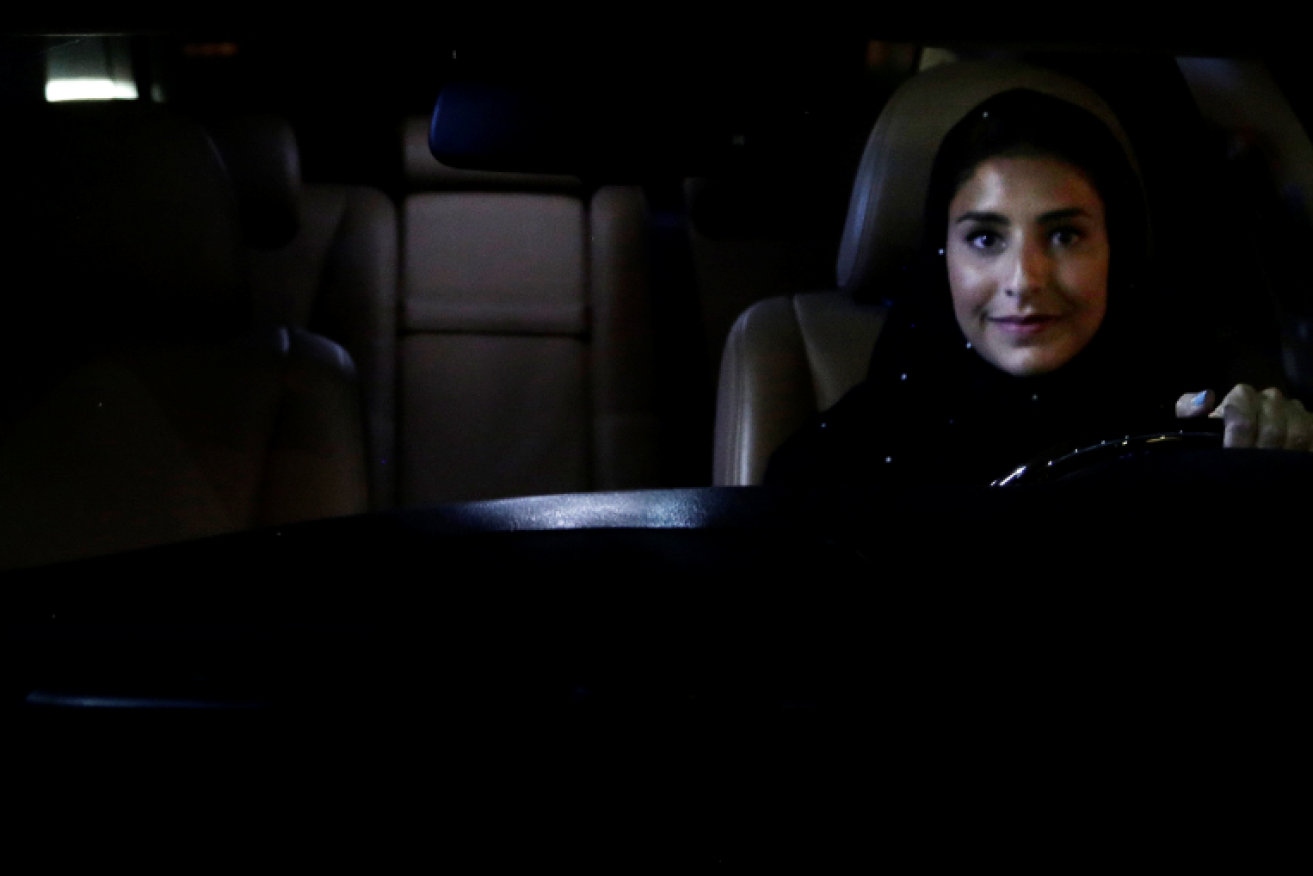Saudi Arabia finally lifts its ban and puts women in the driver’s seat

A delighted Hessah al-Ajaji prepares to hit the streets in the capital's busy Tahlia Street in Riyadh, Saudi Arabia. Photo: AP/Nariman El-Mofty
Women in Saudi Arabia took to the roads at midnight on Sunday, ushering in the end of the world’s last ban on female drivers, long seen as an emblem of women’s repression in the deeply conservative Muslim kingdom.
“It feels weird. I am so happy … I’m just too proud to be doing this right now,” said 23-year-old Majdooleen al-Ateeq as she cruised across Riyadh for the first time in her black Lexus.
The lifting of the ban, ordered last September by King Salman, is part of sweeping reforms pushed by his powerful young son Crown Prince Mohammed bin Salman, in a bid to transform the economy of the world’s top oil exporter and open up its cloistered society.
Women drove up and down a main road in the eastern city of Khobar and cheered as police looked on.
“We are ready, and it will totally change our life,” said Samira al-Ghamdi, a 47-year-old psychologist from Jeddah, one of the first women to be issued a licence.
The lifting of the ban, which for years drew international condemnation and comparisons to the Taliban’s rule in Afghanistan, has been welcomed by Western allies as proof of a new progressive trend in Saudi Arabia.
But it has been accompanied by a crackdown on dissent, including against some of the very activists who previously campaigned against the ban. They now sit in jail as their peers take to the road legally for the first time.
Women with foreign driver’s licences only began converting them earlier this month, so the number of new drivers remains low.
Other women are training at new state-run schools, with three million women expected to be on the road by 2020.
Some still face resistance from conservative relatives, and many accustomed to private drivers say they are reluctant to take on the country’s busy highways.
“I definitely won’t like to drive,” said Fayza al-Shammary, a 22-year-old saleswoman. “I like to be a princess with someone opening the car door for me and driving me anywhere.”
Concerns that women drivers will face abuse in a country where strict segregation rules usually prevent women from interacting with unrelated men prompted a new anti-harassment law last month.
The Interior Ministry plans to hire women traffic police for the first time, but it is unclear when they will be deployed.
The public security directorate reported no unusual incidents one hour after the ban ended.
-AAP






